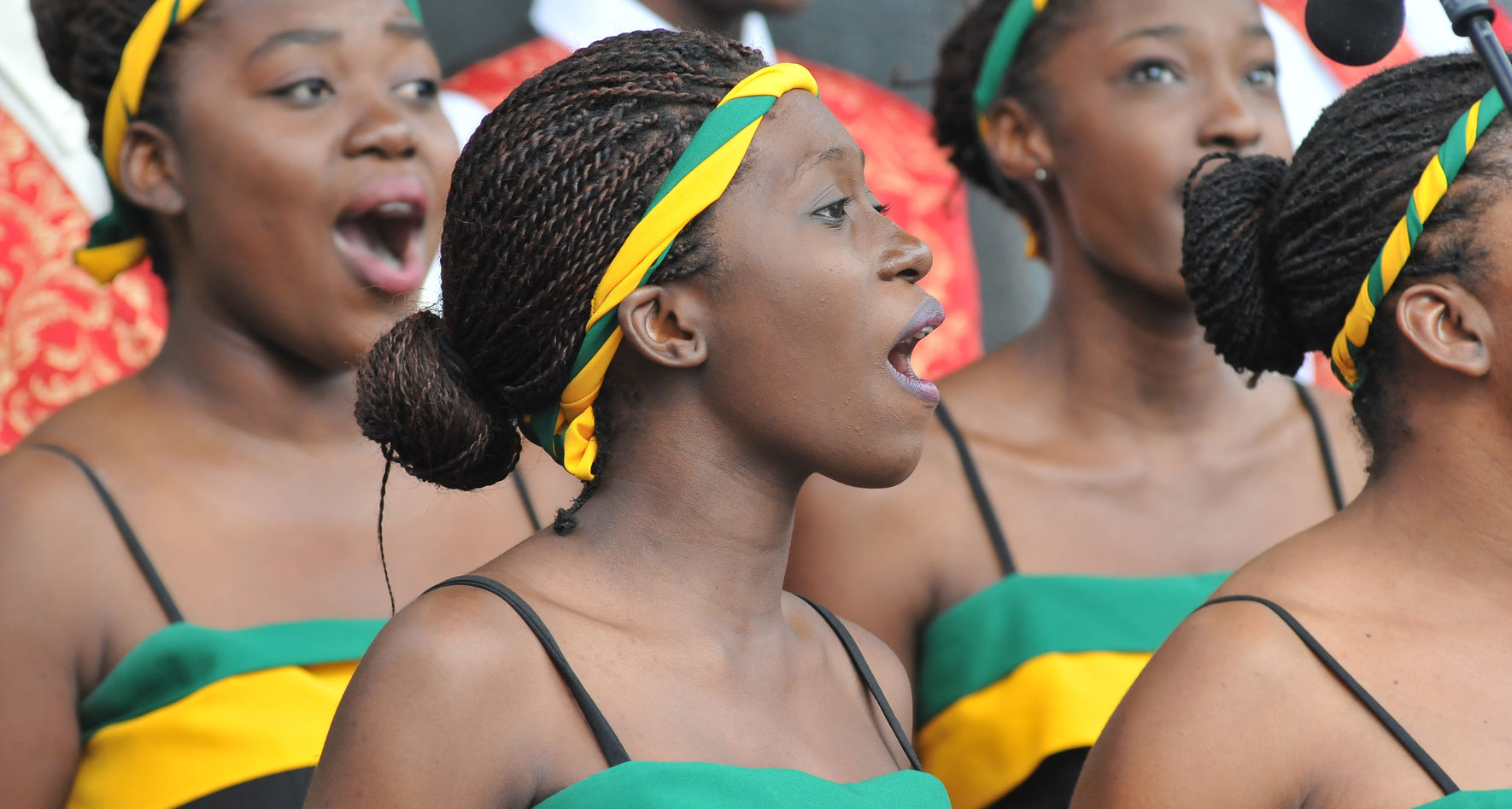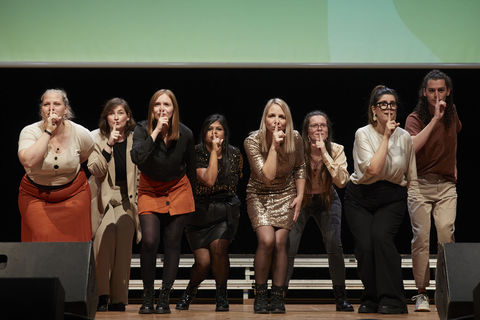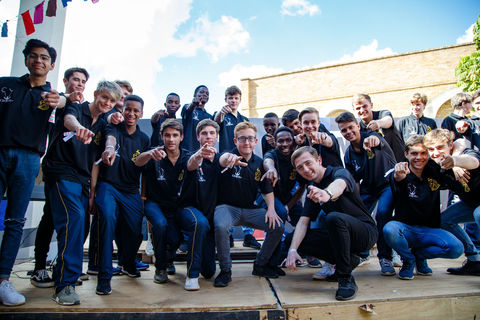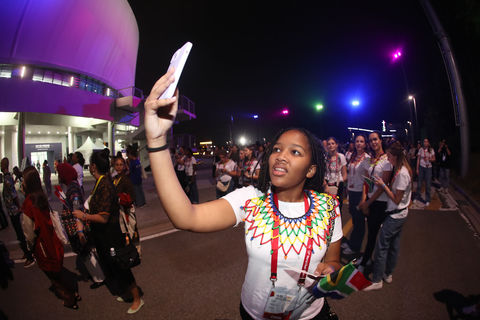
Gregory Simms presents his country and its choral music
The member of the World Choir Council from Jamaica, Gregory Simms, presents his country and its choral music. He is Principal Director of the Jamaica Youth Chorale and Music Specialist at the Jamaica Cultural Development Commission
„My little country Jamaica is known all over the world for beautiful white sand beaches, mesmeric reggae music and athletic superstars. We may also be known for a spicy cuisine featuring Jerk chicken and lovely warm tropical weather all year round. We may also be known as an expressive and creative people who have impacted the world in so many ways. Many of you reading this may know of Bob Marley, Usain Bolt, Naomi Campbell, Sir Williard White, Grace Jones, Marcus Garvey, Claude McKay or some other important Jamaican you may have met on your journey in life. Yes, we are all very important- if even in our own minds. We are a proud and peculiar people and are usually severely patriotic.
My island home is a crossroads nation. It is, as one scholar puts it, where Europe met Africa on Amerindian soil. We are a melting pot of many peoples and nations and our music and culture is a reflection of this. All the world can see a bit of themselves in Jamaica.
The winter has just arrived in Jamaica. Cool winds are blowing in over the Blue Mountains and across the cockpit country and our poinsettias have taken their white, pink or blood red blooms as sugar cane prances in the breeze. It has also been raining. I pray this will not continue for too long. Nevertheless, choirs from all over the country are presenting Christmas concerts and cantatas featuring foreign and local composers such as Dr. Olive Lewin, Dr. Noel Dexter and Dr. Andrew Marshall. These three composers represent the spirit of Jamaican choral music that took a significant upsurge in the 1960’s when the country gained her Independence.
New Jamaican patriotic music was done including our own anthem- Jamaica Land We Love. Jamaican composers began to inject into European or colonial styles of music a unique Jamaican presence with distinctive counterpoint, syncopations and interesting melodic structures. As we began to shape our own identity our music became more experimental and uniquely Jamaican not only in form and structure, but in how it was performed. The music of the masses began to mingle with the music of the upper classes and colonials. There are now Jamaican choral anthems, psalms and hymns that are sung in Jamaican dialect and written using Mento- a very rhythmic musical form that goes all the way back to slavery in the island. There are also choral works that reflect Rastafari- a Jamaican religious form that was once persecuted in Jamaica but is now a global phenomenon- with its dominant Nyahbinghi drumming patterns. There are choral works referencing other traditional folk forms as well- Kumina, Pocomania, ring games, Dinki-Mini and so many others. There are also more contemporary works that make reggae, ska and dancehall music accessible to choirs. My country burst into a flurry of creative imagination and expression rooted in a distinct history and narrative that is yet to end.
The truth is, Jamaicans love to sing and we sing and dance in every activity like so many of you around the world. We sing to celebrate life and death; we sing while we work and while we worship. And with our independence came our own Jamaican Renaissance that nurtured choral works capturing all these moments.
My fascination with Jamaican choral music is rooted in this post independence period when composers got bold and distinctly Jamaican with their work. It is from this period that the Jamaican Spiritual began its development for example. Nevertheless, choral music has been alive in Jamaica for hundreds of years. Jamaican composers such as Samuel Felsted produced what is said to be the first oratorio in this part of the world in 1775. It is a work called Jonah. There are also records of a now defunct Jamaica Choral Society that dates back to the late 1800’s. This is something I am working to revive.
As I sit and write this with my pen in one hand and my coffee in another looking over the dazzled lights of Kingston, I am encouraged to share so much more of my country with you but that certainly would need more time than I have right now. There is so much work here to be done. We have so much music that needs to be published and so many other festivals, websites and events that we need to have done to share Jamaican choral music with the world.
We will get there someday and I look forward to sharing that journey with all of you.“



